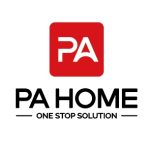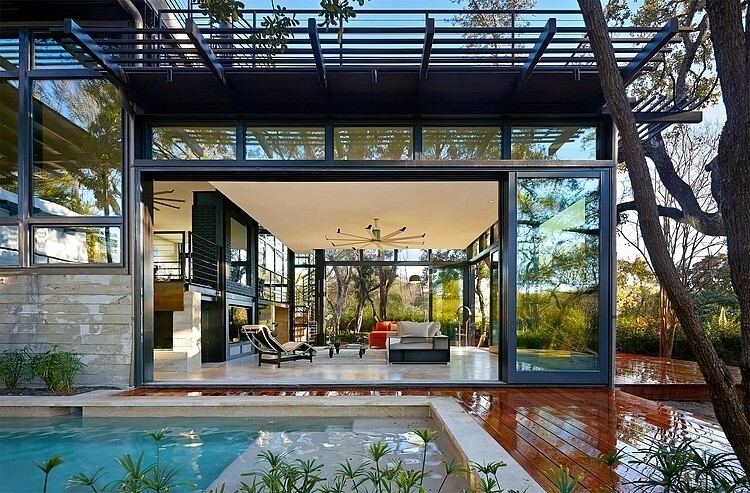When it comes to the entrance of your business or commercial space, first impressions are everything. Aluminum storefront doors are more than just functional; they’re an essential element of modern architecture that can make a statement while offering durability, security, and energy efficiency. Whether you’re outfitting a retail store, office, or restaurant, choosing the right storefront door is crucial.
In this article, we’ll dive into what makes aluminum storefront doors the go-to option for many businesses, explore their advantages, and guide you through the different types available. We’ll also break down the costs, key features, and the common mistakes to avoid when selecting your storefront door. Plus, we’ll highlight some top brands to help you make an informed decision.
Ready to make the right choice for your storefront? Let’s explore everything you need to know about aluminum storefront doors.
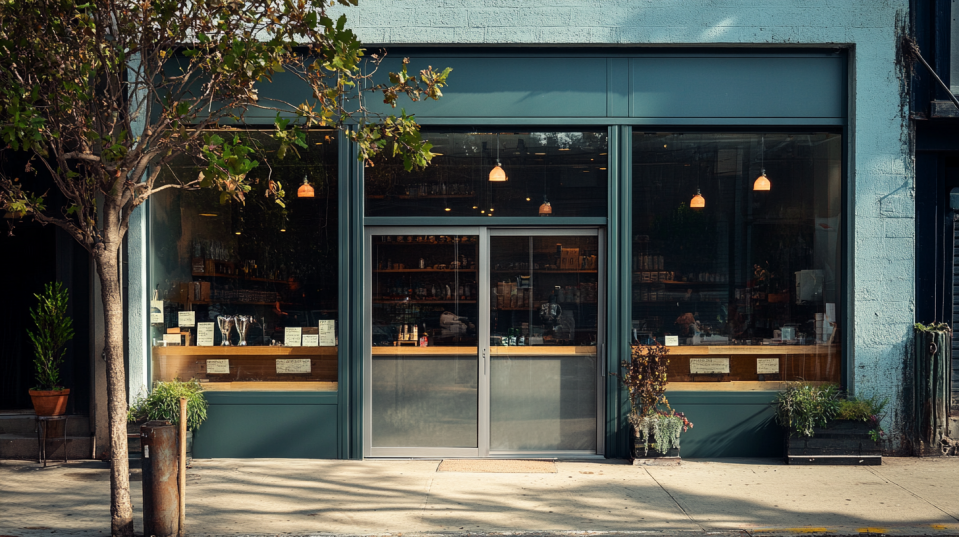
1. What Is an Aluminum Storefront Door?
An aluminum storefront door is a durable, lightweight door typically used for commercial entrances. It’s made from aluminum, which is known for its strength and resistance to rust and corrosion, making it ideal for high-traffic areas and varying weather conditions.
These doors often feature a sleek frame with glass panels, allowing for visibility and natural light. Aluminum storefront doors are customizable, with various glass types and finishes to suit the style of your business. They’re low-maintenance, standing up well to the elements and requiring less upkeep compared to wooden doors.
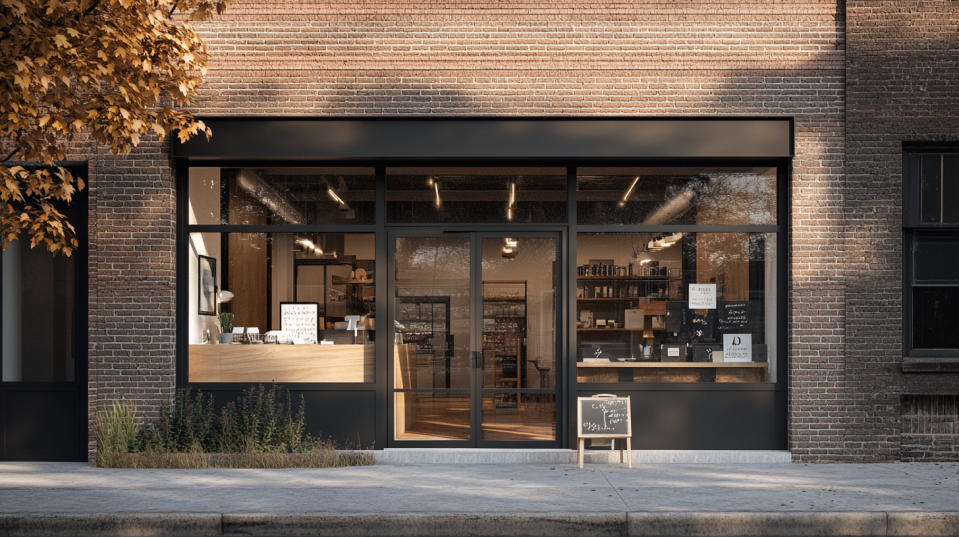
2. What Are the Advantages of Aluminum Storefront Doors?
Aluminum storefront doors come with a whole list of advantages that make them a top pick for commercial spaces. One of the biggest benefits is their durability. Unlike wood, which can warp or rot over time, aluminum stands up to the elements without breaking down. Whether it’s the heat of summer or the chill of winter, these doors stay strong, offering years of service without much upkeep.
Another major plus is their security. Aluminum is a tough material, and when paired with high-quality locks and hardware, it offers excellent protection for your storefront. It’s also highly customizable, so you can get doors that match the style of your business while still being practical. Whether you need large glass panels for visibility or a more solid design for privacy, aluminum storefront doors can be made to fit.
On top of all that, aluminum storefront doors are sleek and modern, giving your business a professional and polished look. They’re easy to maintain and clean, requiring just an occasional wipe-down to keep them looking sharp. All in all, aluminum doors provide a perfect mix of practicality, security, and style.
3. What Are the Different Types of Storefront Doors?
When it comes to storefront doors, aluminum isn’t the only option. There are several types of doors to consider, depending on the style of your space and your business needs.
Swinging Doors
These are the classic commercial doors, where the door swings open on hinges. They can be single or double doors, depending on the width of the entrance. Swinging aluminum storefront doors are often used in smaller spaces or locations that don’t experience heavy foot traffic. They provide a clean, traditional look but may not be ideal for high-traffic areas.
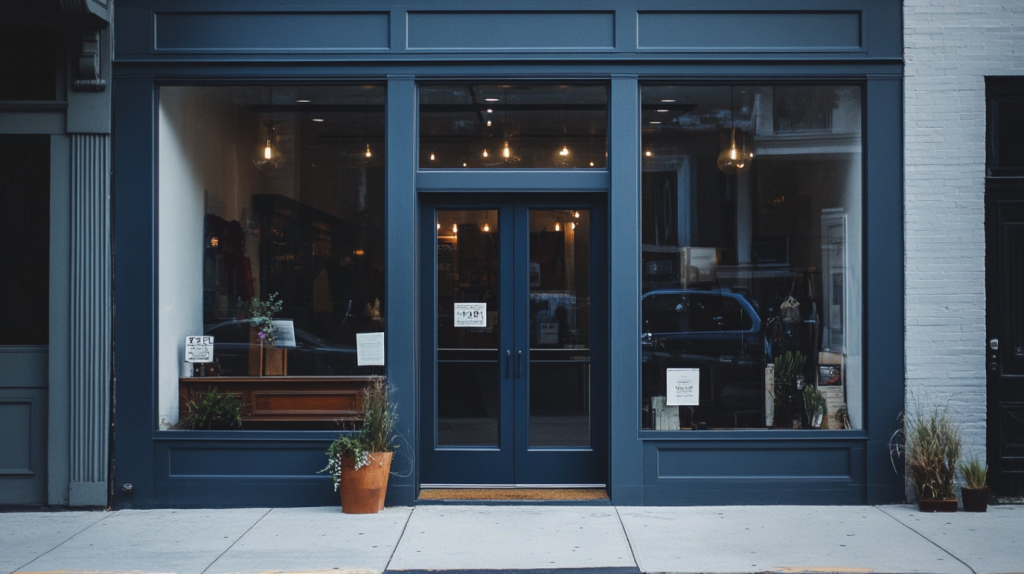
Sliding Doors
For larger spaces or areas where you need wider entrances, sliding aluminum storefront doors are a great option. These aluminum sliding doors glide open horizontally, providing a seamless entry without taking up much space. Sliding doors are particularly popular in places like shopping malls, airports, and restaurants where large, clear entrances are desired. They also tend to be automatic, which makes them convenient for customers with hands full or those with mobility challenges.
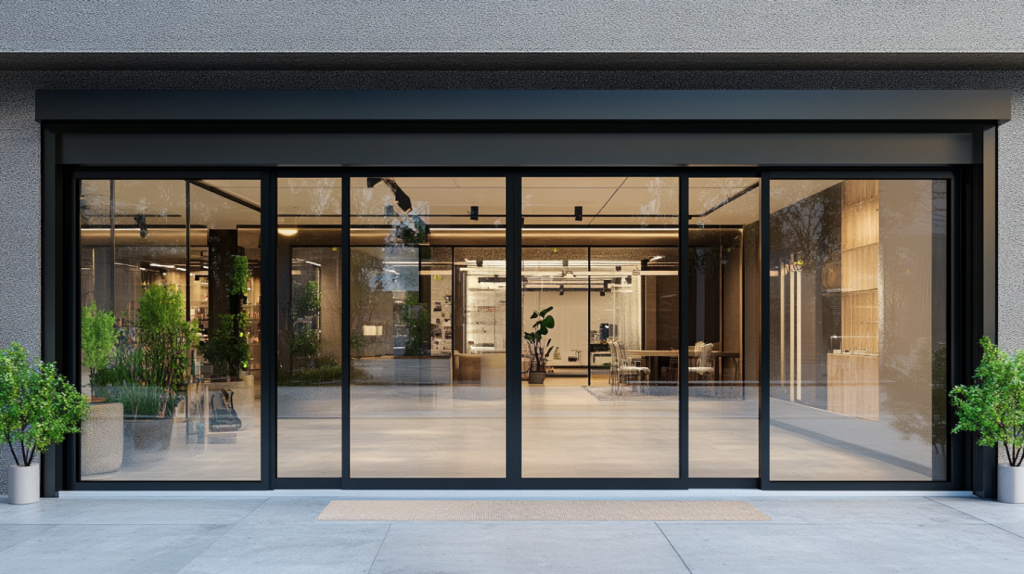
Folding Doors
Folding aluminum storefront doors (also known as bi-fold doors) are perfect for businesses that need flexible, space-saving solutions. These aluminum folding doors fold open like an accordion, allowing you to open up a wide area without taking up too much room. They’re often used in cafés, retail stores, and showrooms where you may want to open up the space to the outside.
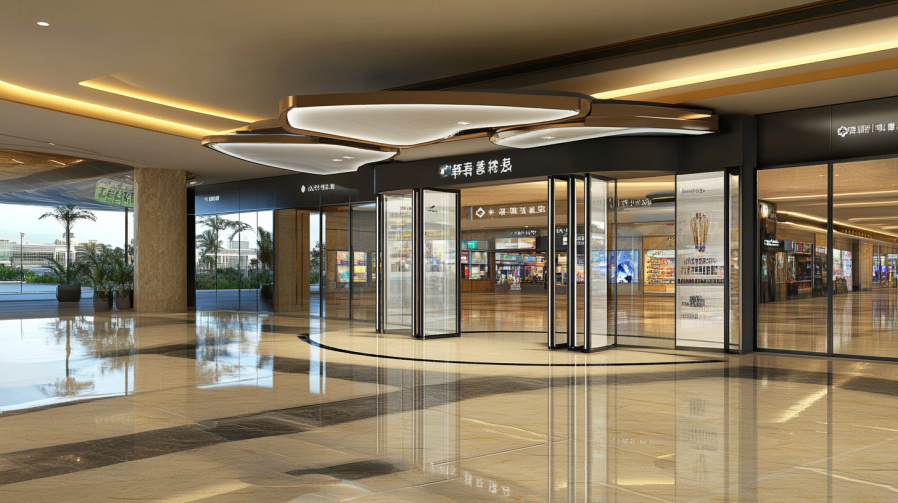
Revolving Doors
While less common, revolving aluminum storefront doors are found in high-end commercial spaces or buildings with heavy foot traffic. They allow a continuous flow of people entering and exiting without wasting energy. Although more costly, revolving doors can add a stylish touch while being energy-efficient by reducing heat loss in busy locations.
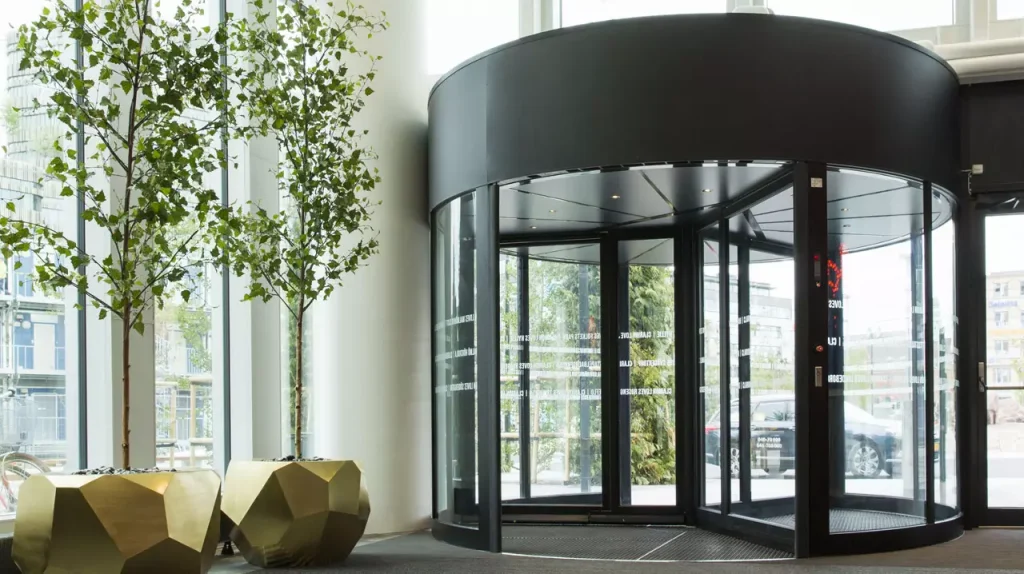
4. How Do Aluminum Storefront Doors Compare to Other Materials?
Aluminum storefront doors have several advantages over other materials, but how do they truly stack up against alternatives like wood, steel, and glass? Let’s take a look at how they compare in terms of durability, cost, and aesthetics.
| Material | Durability | Maintenance | Cost | Security | Aesthetic |
|---|---|---|---|---|---|
| Aluminum | High (resistant to rust/corrosion) | Low (occasional cleaning) | Moderate | Good (with quality hardware) | Sleek, modern |
| Wood | Medium (prone to warping/rot) | High (refinishing/painting) | Low–Moderate | Fair (can be reinforced) | Warm, classic |
| Steel | Very high (strong, impact-resistant) | Medium (needs rust-proofing) | High | Excellent (very robust) | Industrial, heavy-duty |
| Tempered Glass | Low (fragile on its own) | Low (simple cleaning) | Moderate–High | Low (needs framing) | Clear, open, contemporary |
5. How Much Does an Aluminum Storefront Door Cost?
The cost of aluminum storefront doors can vary widely based on factors like size, customization, and installation requirements. Here’s a general overview:
Material Costs:
Standard Aluminum Storefront Door (Single, 3’0″ x 7’0″): Approximately $633.00
Double Aluminum Storefront Door (72″ x 84″): Starting at $1,931.35
Installation Costs:
- Average Installation Cost: Ranges from $1,500 to $3,500, depending on complexity and location
Additional Costs:
Customization: Features like insulated glass, custom finishes, or specialized hardware can add $500 to $1,500 or more to the base price.
Hardware and Accessories: Additional components such as locks, closers, and weather stripping can range from $50 to $200 per door.
Example:
A standard 3’0″ x 7’0″ aluminum storefront door with basic hardware and installation might cost between $2,000 and $3,000. Opting for higher-end features or customization can increase the total cost accordingly.
DIY installation is recommended to save money on storefront doors. (False)
Commercial aluminum storefront doors require professional installation to ensure safety, warranty compliance, and proper function.
6. What Are the Key Features of High-Quality Aluminum Storefront Doors?
High-quality commercial aluminum storefront doors share features that ensure top performance and longevity. When you’re shopping, look for:
Thermal Break Technology
Insulating barrier between interior and exterior aluminum profiles reduces heat transfer and improves energy efficiency.Heavy-Duty Aluminum Extrusions
Extruded aluminum alloys offer strength close to steel, resisting bending and corrosion over timePremium Door Hardware
Commercial aluminum storefront door hardware like robust hinges, pivots, and closers stand up to frequent use and heavy loads.Impact-Resistant Insulated Glass
Double- or triple-glazed glass panels enhance security and sound insulation while maintaining visibility.Integrated Weatherstripping
Quality seals and sweeps around thresholds and frames keep drafts and moisture out
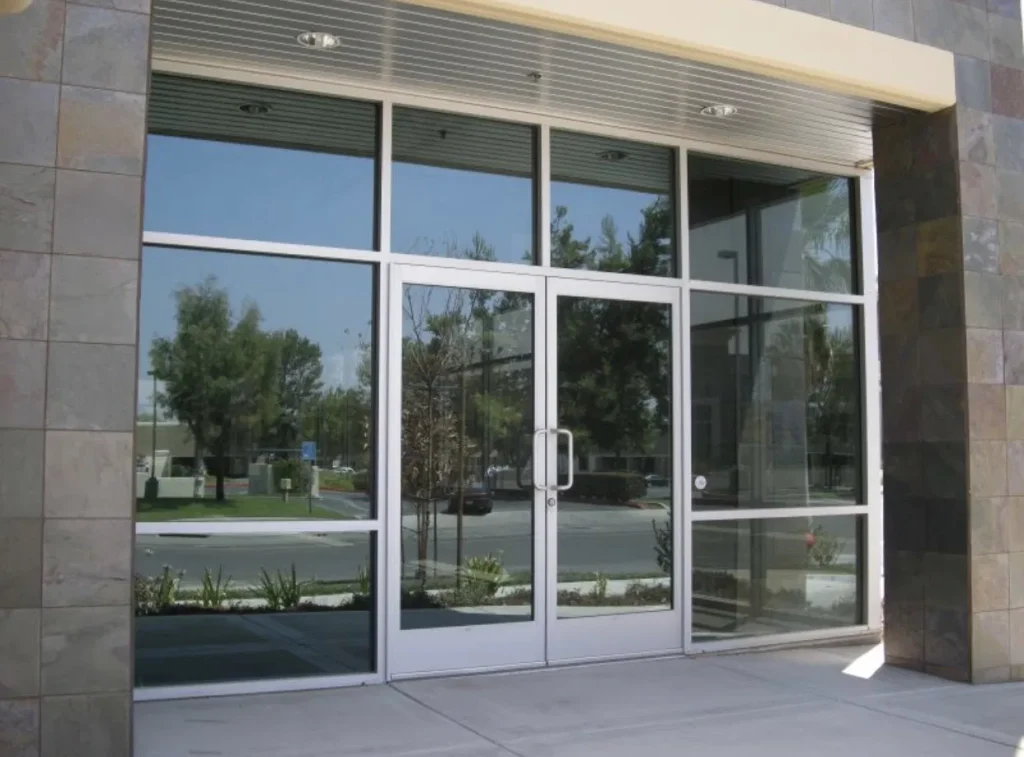
7. What Are the Common Mistakes to Avoid When Choosing Aluminum Storefront Doors?
Choosing the right aluminum storefront door for your business is an important decision, but there are a few common mistakes that can lead to extra costs or problems down the road. Here’s what to watch out for:
1. Not Considering Traffic Flow
If your business experiences heavy foot traffic, it’s important to choose a door that can handle that. Swinging doors might not be the best choice for high-traffic areas, while sliding or bi-fold doors might be more appropriate. Always think about how many people will be using the door and how often.
2. Overlooking Energy Efficiency
Energy-efficient aluminum storefront doors can help you save on heating and cooling costs in the long run. Look for doors with insulated glass or thermal breaks. Skipping this feature may save you a little money upfront, but it could end up costing you more over time.
3. Forgetting to Check Local Building Codes
Building codes and regulations can vary by location, so it’s essential to ensure your door meets the specific requirements in your area. This includes things like accessibility standards (ADA compliance) and safety features like fire ratings or impact resistance.
4. Choosing the Wrong Hardware
The door’s frame might be high-quality, but the hardware is just as important. Cheap locks, hinges, and closers can wear out quickly, leading to costly repairs or replacements. Don’t cut corners here—investing in good hardware ensures the longevity of your door.
5. Ignoring Long-Term Maintenance Needs
While aluminum storefront doors are generally low-maintenance, they still require some attention. Ensure you understand what kind of care your door will need, especially when it comes to cleaning, lubricating hardware, and maintaining the seals and weatherstripping.
8. Top 5 Aluminum Storefront Door Brands
Choosing the right aluminum storefront door for your business is an important decision, but there are a few common mistakes that can lead to extra costs or problems down the road. Here’s what to watch out for:
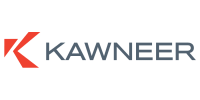
Kawneer focuses on sustainable, high-performance storefront doors that meet LEED certifications and provide excellent weather resistance and soundproofing. Their durable hardware and eco-friendly solutions make them ideal for projects emphasizing environmental responsibility.
PA Home stands out with precise manufacturing and enhanced security features. Offering integrated storefront, window, and curtain wall solutions, PA Home delivers cohesive and reliable building envelopes favored in large commercial developments.

YKK AP is a renowned manufacturer of architectural products, offering high-quality aluminum storefront door systems. Their products focus on thermal performance and security, utilizing advanced thermal break technology to balance aesthetics with durability. YKK AP’s aluminum storefront doors have performed exceptionally well in numerous commercial projects worldwide.
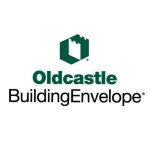
Oldcastle BuildingEnvelope specializes in versatile storefront doors with multiple finish and glazing options, including hurricane-resistant systems designed for high-wind and coastal areas. Their products balance aesthetics with structural performance, suited for demanding environments.
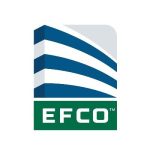
EFCO Corporation offers cost-effective, energy-efficient aluminum storefront doors with a focus on quick delivery and strong customer support. EFCO is a solid option for projects needing reliable performance on tight schedules and budgets.
Ready to Get Aluminum Storefront Doors?
Aluminum storefront doors offer a durable, stylish, and cost-effective solution for any commercial space. They combine low maintenance with strong security and energy efficiency, making them a smart long-term investment.
At PA Home, we specialize in high-quality aluminum storefront doors tailored to your needs. Ready to upgrade your business entrance? Contact us today to find the perfect door solution for your project.
FAQs about Aluminum Storefront Doors
While aluminum doors are durable and low-maintenance, they can dent or scratch more easily than steel. They also have lower inherent strength compared to hollow metal doors, which might be a concern in high-security applications.
Aluminum storefront doors offer better corrosion resistance, lighter weight, and greater design flexibility. Hollow metal doors provide higher security and impact resistance. The best choice depends on your specific needs for security, appearance, and durability.
Yes, with quality locks, impact-resistant glass, and proper installation, they offer strong security for commercial properties.
Modern doors with thermal breaks and insulated glazing can significantly reduce energy loss, helping lower heating and cooling costs.
Commercial aluminum storefront doors are designed for heavy foot traffic and high durability. They feature stronger frames, impact-resistant glass, and enhanced security hardware to meet commercial building codes.

